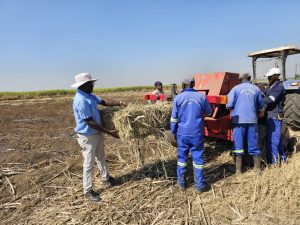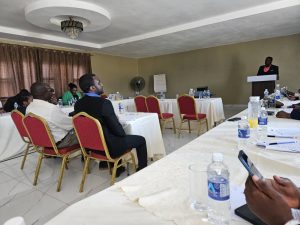Moses Ziyambi
The Africa Climate Week, which was held in Libreville, Gabon, between August 29 and September 02, 2022, saw Zimbabwe participating with a focus on the Glasgow Work Programme on Action for Climate Empowerment (ACE) among other agenda items.
The Africa Climate Week is a collaboration platform to explore resilience against climate risks, the transition to a low-emission economy, and partnerships to solve pressing climate challenges in Africa.
Emphasized by Parties to the United Nations Framework Convention on Climate Change (UNCCC) at the 26th Conference of Parties (COP26) held in Glasgow, United Kingdom, ACE calls on governments to develop and implement educational and public awareness programmes, train scientific, technical and managerial personnel, foster access to information, and promote public participation in addressing climate change and its effects.
ACE addresses all six priority areas of Article 6 of the UNFCCC which are education, training, public awareness, public access to information, public participation, international cooperation.
The Zimbabwean team included the National ACE Focal Point, Mr Tatenda Mutasa, who made a presentation on experiences and lessons learnt in implementing the action points.
His presentation highlighted various ACE programmes initiated in the country including the development of the National Climate Change Learning Strategy; Engagement of youths in climate change programming; Training of Media Practitioners for effective climate change reporting and provincial and district engagements under the National Adaptation Planning Programme.
At the event, Participants were informed that an Action Plan for the Glasgow Work Programme on Action for Climate Empowerment will be adopted at COP 27 to be held in Egypt.
African countries without National Focal Points for ACE were recommended to nominate them, with governments being challenged to channel more financial resources to ACE programming at regional, national and sub-national levels.
“The country should consider subscribing to the Global Green Growth Institute (GGGI) which is a treaty based international, inter-governmental organization that supports developing countries to transition to a model of economic growth that is environmentally sustainable and socially inclusive,” reads part of the preliminary report released after the Africa Climate Week.






